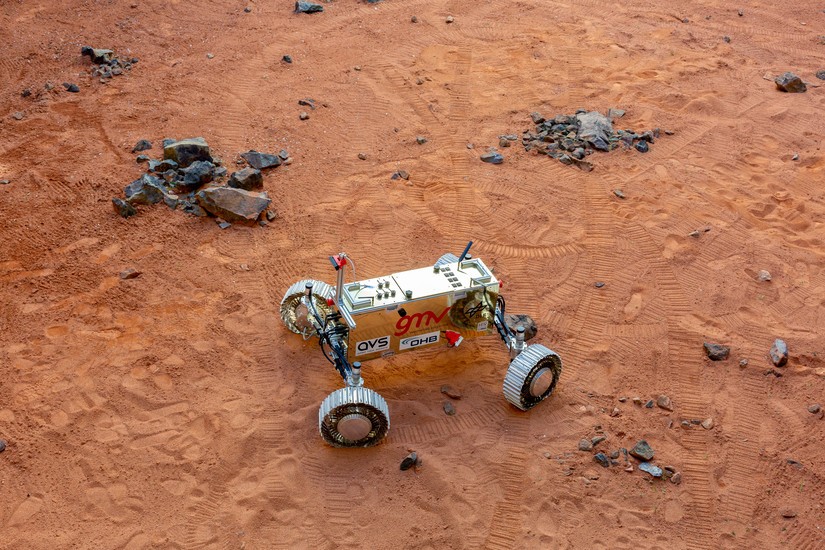Successful tests of EMRS project on Mars and Moon analogues surface last February

GMV is leading one of the two Pre-Phase A studies of the European Moon Rover System (EMRS). This project focuses on finding the best solution for a potential future European rover, with the ability to carry out different missions in different places on the lunar surface. As such, the GMV’s EMRS team (OHB, AVS, HTR, DLR) has selected a modular approach, allowing different capabilities to be added to the rover and the egress with minimal changes. By design, EMRS is intended to be used for Polar Explorer, Astronomical Lunar Observatory, and In-Situ Resources Utilisation missions and other non-polar geological missions (f.i. equatorial).
In only nine months the GMV’s EMRS modular solution has shown not only its suitability to be used in various mission configurations, but its capability to achieve a balance between versatility and system optimality, making flexibility the key design driver.
The solution proposed in EMRS has been tested in two analogue facilities, DLR's PEL and GMV's SPoT, the former analogous to the Moon and the latter to the Martian surface. The test results showed that the proposed solution, first the locomotion system, can traverse difficult terrain, climb slopes greater than 25º and overcome many obstacles while maintaining high performance, both on lunar regolith and on the ground.
Excavation tests have demonstrated the ability to excavate in lunar regolith, essential for human life on the Moon.
The GMV’s EMRS showed the need and the feasibility to think modular when talking about future lunar exploration.